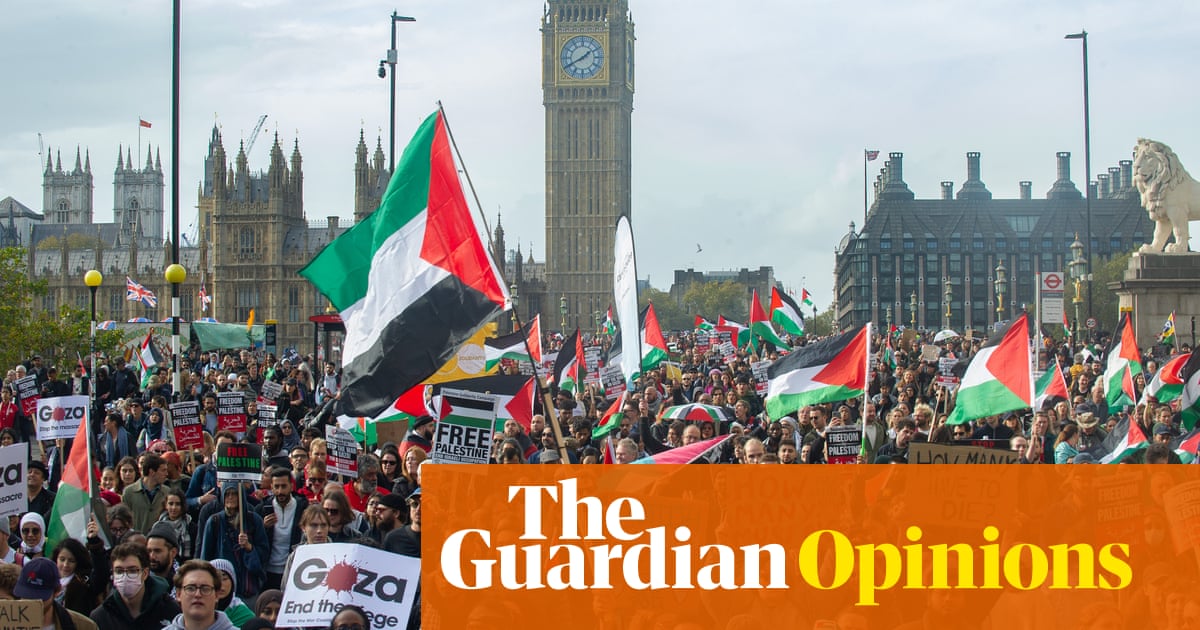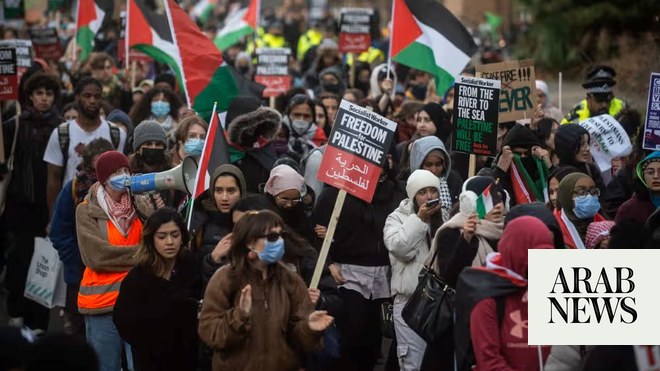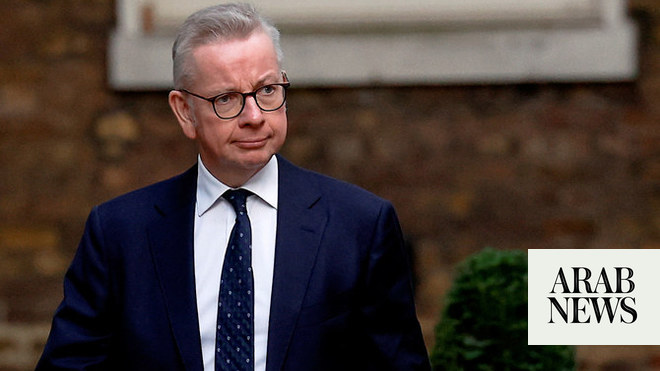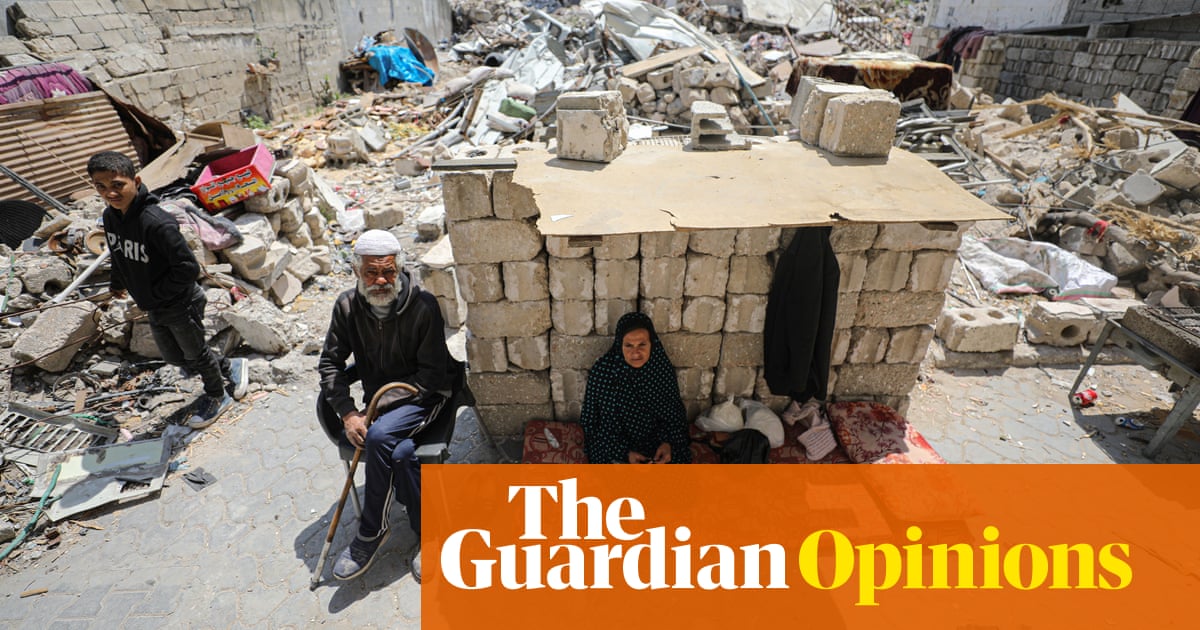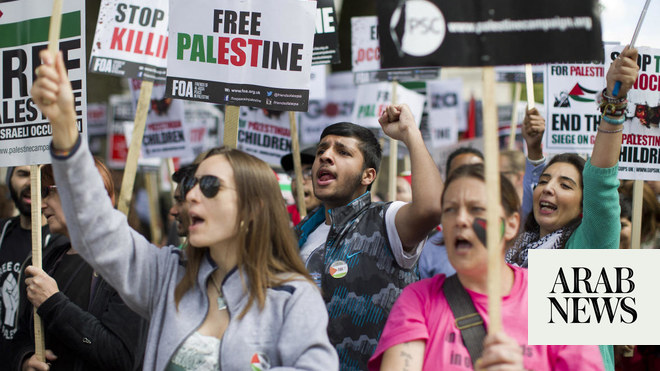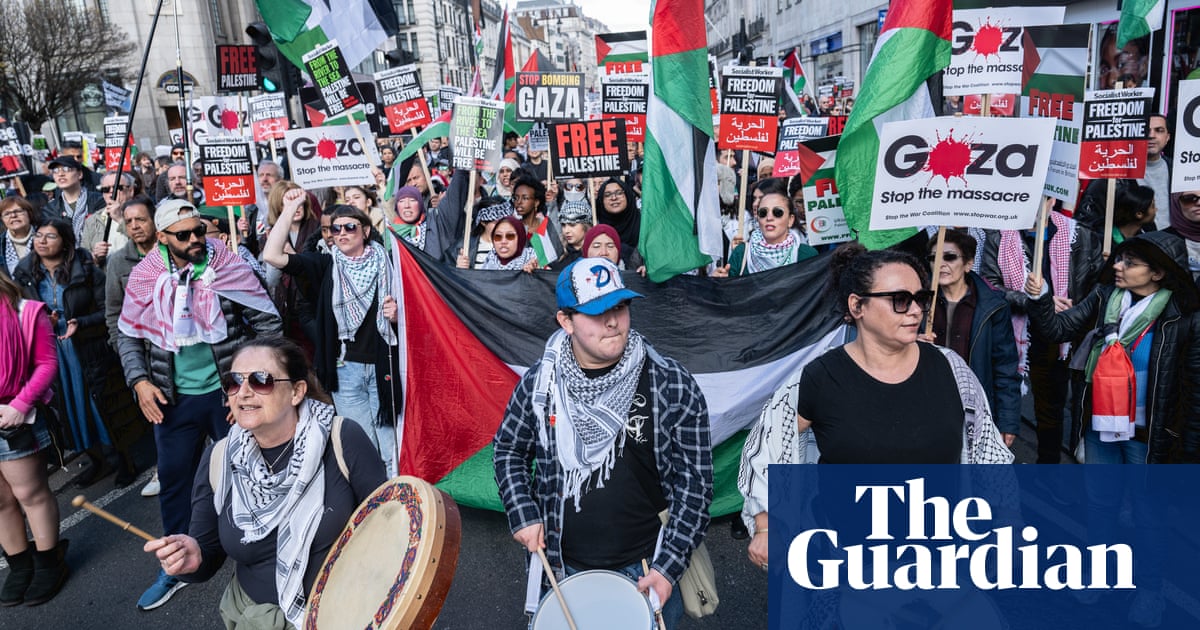
It was in late March when Maaria Ahmed found herself driving down the M1 from Leicester to London to join thousands of others calling for a ceasefire in Gaza.
Ahmed, a 31-year-old mother of three, had never been to a protest in the UK before. But, she said, she felt compelled to attend the demonstration along with marchers from across the country, despite her initial anxieties.
“I wasn’t quite sure how these marches are run so I wanted to go by myself to suss it out,” she said. “I’ve never been on a march and I was very cautious because I was thinking: is it going to be dangerous? Is someone going to be fighting?”
“But when I went there it was – I actually feel emotional talking about it – just such a lovely, overwhelming feeling of solidarity, humanity and empathy, which I actually thought had been lost. It was so peaceful,” Ahmed said tearfully.
This weekend marks six months since the national pro-Palestine march took to the streets in Britain, becoming a punctuation point in the week of protesters, their critics, and those who see the marchers pass by most Saturdays.
The protests began in the aftermath of the attack by Hamas militants on Israel on 7 October, when about 1,200 people were killed and 250 taken hostage. Israel responded to the attack with a military offensive in the Gaza Strip, which has killed more than 33,000 people so far – mainly women and children.
Since then the UK has seen huge swathes of people gather to demand an end to the war. From Liverpool to Edinburgh to Swansea, the communal show of dissent by thousands of individuals like Ahmed has not only registered anger at events overseas, but had a significant impact on domestic life in Britain.
Sparking interventions from the prime minister and rows between senior echelons of government and policing, the marches have dominated national debate and discussion around freedom of speech, the right to protest and rising antisemitism and Islamophobia.
According to one expert, the scale and momentum of the demonstrations is comparable to anti-Iraq war protests in 2003 when an estimated 1.5 million people took part in the largest demonstration in British history.
Ben Jamal, the director of the Palestine Solidarity Campaign (PSC), one of the groups coordinating the marches, said the protests have been “extraordinary” in their impact. One particular flashpoint was the demonstration on 11 November, Armistice Day.
Angered by the plan to march on a date of national sensitivity, the former home secretary Suella Braverman had described the demonstrations as “hate marches” and accused the Metropolitan police of displaying “double standards”, while others called for the march to be banned.
Under pressure to establish the force’s position, Mark Rowley, the Metropolitan police commissioner, said there were insufficient grounds to stop the march, and so the demonstration went ahead – attracting hundreds of thousands of pro-Palestine protesters, and a counterprotest of far-right activists which quickly turned violent.
“All through that week we didn’t know whether it was going to take place and that, I think, added to the mobilisation,” Jamal said. “The numbers were phenomenal … that was a moment I thought: grief, we’ve built something extraordinary.”
The febrile and politicised nature of the debate around the marches, which escalated after the protests on Armistice Day, brought a new focus on how tightly the events were policed.
Despite this, Jamal said the demonstrations have continued to attract a “broad alliance” of people with more than 270,000 people subscribed to the PSC’s mailing list in April, in comparison with 60,000 last September.
The gatherings, however, have not been without their critics. Strong criticism from MPs and Jewish groups has been aimed at the events, with some saying the protests make British Jews feel “unsafe”, according to the Board of Deputies of British Jews. One feature of the protesters they point to are incidents where marchers have been shown displaying antisemitic placards and banners that express support for Hamas, a proscribed terrorist group.
With the marches having already caused reverberations through Scotland Yard and the Home Office, the prime minister was next to weigh in with an intervention from the steps of number 10 Downing Street.
In an unplanned address, broadcast on national television, Rishi Sunak urged individuals attending the protests to not “let the extremists hijack your marches” while the UK’s counter-extremism tsar, Robin Simcox, went further and claimed the capital had turned into a “no-go zone for Jews every weekend”.
Max Hammer, 22, is one of the hundreds who have formed a ‘Jewish bloc’ – a coalition of Jewish groups that oppose the Netanyahu government– who attend the marches. He said: “Despite the fact that these marches are often sort of labelled as ‘dangerous for Jews’, one of the things that I found really empowering is to be part of the ‘Jewish bloc’ and see how many Jews are actually out on the streets declaring loudly their solidarity with Palestinians. We are always welcomed very, very heartily.”
The Labour party too were drawn into the controversy when one of its senior politicians, Andy McDonald, was suspended for “deeply offensive comments” made at a pro-Palestine march in October. He later had the Labour whip restored after an internal investigation.
The Metropolitan police previously said the majority of people joining demonstrations “have done so in a lawful and peaceful way but a minority have broken the law and arrests have been made”.
Whether the marches have influenced matters on the ground in Gaza is questionable, but Jamal believes one impact can be seen in the position of the Labour party, which has moved towards the ceasefire protesters so badly want.
Six months on from the first national march, a spokesperson for the Home Office said “the right to protest is a fundamental part of our democracy” but this must be balanced with “protecting the law-abiding majority’s right to go about their daily lives”.
Ahmed, once a novice protester, said she planned to attend another march in the near future. “I even told my husband I’m going to be taking my children to the next one.”




